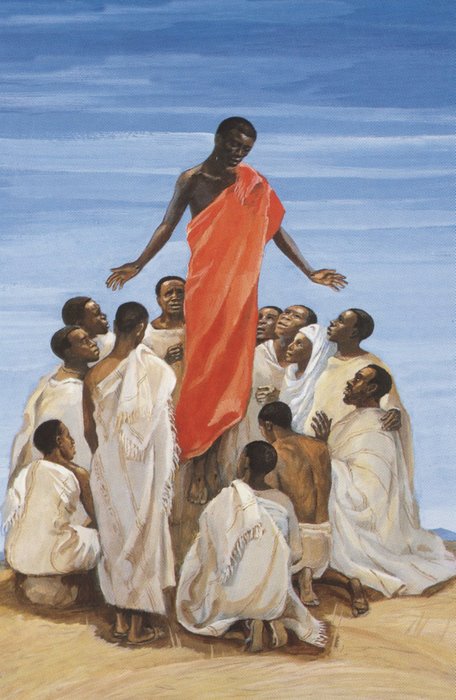
The Ascension
JESUS MAFA, 1973
My dear friends,
As we reflect upon the narrative of Ascension from Acts 1:6-14 on this seventh Sunday of Easter, we are invited into a moment of transition and transformation. This passage, through the lens of the Bodhisattva path, unfolds profound teachings on patience, relinquishment, and the journey towards enlightened compassion.
they asked him,
"Lord, is this the time
when you will restore the kingdom
to Israel?"
- Acts 1:6
The disciples’ question to Jesus reveals a fundamental human longing for certainty and fulfillment. In the Bodhisattva tradition, this longing is acknowledged as a step on the path to understanding the nature of reality and the impermanence of all phenomena. Just as the disciples seek clarity about the kingdom, we too are reminded to look beyond our immediate desires and understand the deeper, interdependent nature of existence.
"It is not for you to know the times or periods
that the Father has set by his own authority.
But you will receive power
when the Holy Spirit has come upon you;
and you will be my witnesses
in Jerusalem, in all Judea and Samaria,
and to the ends of the earth."
- Acts 1:7-8
Jesus's response to the disciples embodies the wisdom of not clinging to outcomes or craving for knowledge of the future, akin to the teachings on emptiness and impermanence in Buddhism. He redirects their focus towards the power of the Holy Spirit, symbolizing the inner transformation that empowers us to act compassionately and wisely in the world. This mirrors the Bodhisattva’s journey of cultivating Bodhicitta, the mind of enlightenment, to benefit all beings without attachment to the fruits of one’s actions.
and a cloud took him out of their sight.
While he was going and they were gazing up toward heaven,
suddenly two men in white robes stood by them.
They said, "Men of Galilee, why do you stand looking up toward heaven?
This Jesus, who has been taken up from you into heaven,
will come in the same way as you saw him go into heaven."
- Acts 1:9-11
From a Mahayana Buddhist perspective, the Ascension of Jesus represents the ultimate release from earthly limitations and the realization of a state (Dharmakaya) beyond form. The question posed by the men in white robes serves as a gentle reminder to not become fixated on the absence of the teacher in physical form (Nirmanakaya) but to internalize his teachings and embody them in our actions towards the liberation of all beings.
which is near Jerusalem, a sabbath day's journey away.
When they had entered the city, they went to the room upstairs where they were staying,
Peter, and John, and James, and Andrew, Philip and Thomas, Bartholomew and Matthew,
James son of Alphaeus, and Simon the Zealot, and Judas son of James.
All these were constantly devoting themselves to prayer,
together with certain women, including Mary the mother of Jesus, as well as his brothers.
- Acts 1:12-14
The communal prayer and unity of the disciples after Jesus’s Ascension reflect the Bodhisattva ideals of sangha (spiritual community) and diligent practice. This collective dedication to spiritual development and prayer is a powerful expression of the Bodhisattva vow to benefit others, demonstrating how communal support and shared intention can create a fertile ground for transformation and enlightenment.
In this time of Ascension, let us embrace the teachings of impermanence, compassionate action, and the power of community. May we walk the path with diligence, embodying the wisdom and compassion of the Bodhisattva, as we seek to bring light and love into the world.